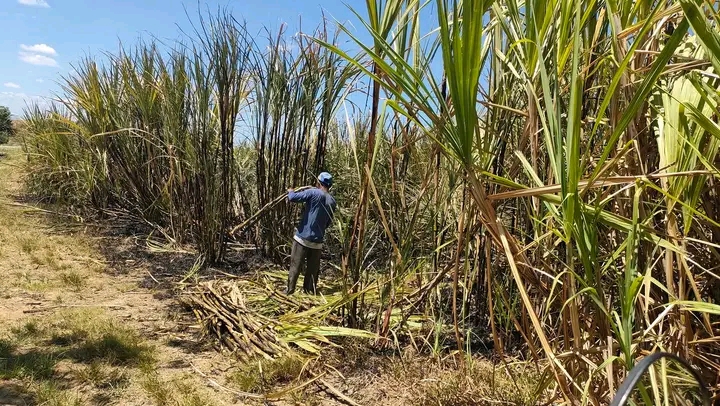Sunday ,31 March,2024
When a young person believes they can make a change, they can. Belief is an essential step towards wide-scale change and consequently the ideas that shape our beliefs have the highest value when they are put into action.
The organisation, ‘Student Action for Refugees’ (STAR), is one that allows students across the UK to act towards this idea.
“I attended the UNESCO World Higher Education Conference to share my narrative of STAR and how any individual can make a change” Daniel Mutanda, a scholar says.
STAR was set up in 1996 by Andy Davies, a student at Nottingham University inspired to set up a student group that would support refugees. He wrote to UNHCR asking for help and they responded by sending him resources to set up a pilot project. STAR started as a student society that spread from one university to three within three years.
By its third year, STAR was registered as a charity and continued growing until today where there are 2000 members in 45 STAR groups across the UK. Andy had the inspiration for change, and he took the action to make it happen.
However, this happened gradually and in an environment that became increasingly hostile to the core values that STAR represents.
Since the early days of STAR, the UK has been shifting its approach to immigration and introducing increasingly amoral asylum policies. This hostile environment manifested itself as barriers to higher education including denied access to student finance, failure to recognise existing qualifications and the breakdown of social capital.
There was little awareness that these structural barriers existed – people were given inaccurate advice from schools/colleges or had inadequate support from universities with little to no options. Consequently, many people were unable to pursue their academic ambitions and simply left behind.
It was within this environment that a growing STAR network began to realise its potential not only to raise awareness about refugee education issues and provide practical help but to change the system.Over the years STAR has launched many successful campaigns.
Among these is the Equal Access Campaign which asks universities to:
1. Classify all those seeking asylum as home students for fee purposes
2. Offer scholarships to cover study and maintenance costs
3. Publicise their Equal Access policies so that potential students can easily apply.
The Equal Access campaign has successfully created scholarships for asylum seekers and refugees at over 70 universities.
Students from across the UK who believe in equal access to education for all have joined to campaign for people from displaced background study at university.
Mutanda , for one, has experienced both sides, He gained access to university as a scholarship beneficiary, and took action as a campaigner to increase access to higher education.
He gained access to study psychology at the University of Winchester through a sanctuary award scholarship because his immigration status stopped him from receiving student finance.
In his second year, hewas supported to attend the Article 26 conference. It was an opportunity to connect with sanctuary scholars (students who accessed university while seeking sanctuary) and learn more about accessing higher education.
Mutanda spent time at the conference listening to the experiences of other students from a similar background as me, a variety of different routes and circumstances, but arriving at the same barriers to HE, mutanda realised how widespread these problems were.
However, He also learned more about the people/organisations working to change the system, and wanted to help make a change.
Within 3 months of the conference, Mutanda became employed as a student ambassador by the University of Winchester’s widening participation department, and while completing his bachelor’s, started the process of setting up a STAR group on my campus.
After a year he had delivered various workshops and contributed to national resources on higher education. He started his masters at the University of Warwick and began to work with STAR more nationally, speaking at events and conferences, but I was also still volunteering locally at Warwick STAR, teaching English to refugees in our community at our conversation clubs.
One step at a time, His confidence and capacity grew with each opportunity leading him to becoming an Equal Access Activist, using his learned experience of accessing higher education while seeking sanctuary to guide STAR’s Equal Access campaign.
His narrative is just an example of how individuals can thrive if they are given the chance to study; now he work to ensure that the opportunities he had are progressively accessible to others.
Mutanda has met with various university staff, and government officials, and worked with students and the media to develop outputs such as articles, interviews and webinars which demonstrate the difficulties of accessing higher education.
He is able to do this because he has felt the nauseous anxiety of having to fill a scholarship application knowing it’s the only way to study at university, the depression from social exclusion because you can’t afford student society/sports fees and the embarrassment when you have to explain to university staff why you don’t have certain documents.
His lived experience informs action to reshape practices across the higher education sector and serves as a role model for those who are trying to access higher education while seeking sanctuary in the UK.
So, what can we learn from all this? Wide-scale movements can start from one ordinary student taking action, but they cannot go far alone. Therefore, three key things must happen.
First we must all learn more about what it means to be a displaced person seeking sanctuary; Then organisations/institutions must take positive action to invest in initiatives that foster welcome, safety and inclusion; Third and importantly We all must take steps to ensure this progress outlasts the current student population.
The idea to create STAR came from one student who learned about the plight of refugees. His pioneering work was jump started by investments from UNHCR and the Refugee Council who provided him with stationery and posters.
He recruited the first generation of STARs who went on to enable new students to join the cause and continue the work up to today. Now, the future of this work is being shaped by those it is purposed to helpIn conclusion, institutions and organisations must seek, listen to and believe in the voices of people with the lived experience of what they are campaigning for, they must create a space for the people who are experts by virtue of having that experience and we will take action together to achieve equal access to higher education.
By Daniel Mutanda, McCreadie Andias, Nawezaa





